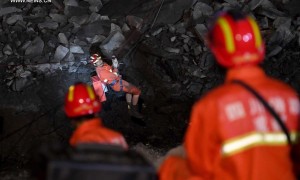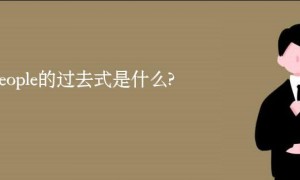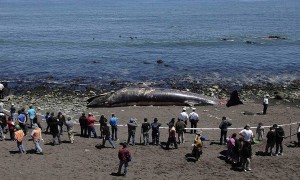people, masses, mob, populace, rabble
这五个词都可指“某国或某一地区的居民”。它们的区别是:
people的意思是“人”“人们”“人民”,是最普通的词,经常是中性含义,用于大批人或不精确说明人数的场合,有时也可指少数人或精确说明人数的场合; populace的意思是“居民”“平民”,几乎唯一地指某地区的居民; masses用于指“普通群众”; mob的意思是“一群人”“乱民”; rabble的意思是“下层民众”“暴民”。例如:
The Chinese people are an industrious people.中国人民是勤劳的民族。
Nearly the entire populace turned out to listen to his speech.几乎所有的人都出来听他演说。
The masses have boundless creative power.人民群众有无限的创造力。
Streets were crowded with mobs of workers going home after work.街上挤满了一群群下班回家的工人。
The explanations of tax reforms were good enough for the rabble.对税制改革的解释对这些下层民众来说是够好的了。
people, nation, race, state, tribe
这组词都可表示“民族”。它们的区别在于:
1.race作“种族”解时,侧重人种学含义,往往包括几个民族和国家,这些民族的人民有某一相同的的自然特点(如肤色)。
2.nation指有共同的历史,使用同一种语言,居住在同一个大的地区,侧重于人民。例如:
The story is about the Indian nations in the western United States.这个故事是关于美国西部印第安民族的。
3.tribe指有共同的语言与风俗习惯,尤其是以古老生活方式生活的“部落”。例如:
Schools will help to civilize the wild tribes there.学校将有助于使那儿的野蛮部落文明化。
4.state指国家或者邦〔州〕,侧重政权。例如:
In our country, the people are protected by the state.在我国,人民受国家的保护。
That country is now an independent state.那个国家现在是个独立的国家。
They believed that the state was “above class distinctions”.他们认为国家是“超乎阶级区分之上”的。
5.people指有共同文化、共同利益或理想的一群人,强调文化和社会的统一,而不是国家和民族的统一。例如:
They will discuss giving further help to the oppressed peoples.他们将讨论给予被压迫民族更多援助。
people, person
这两个词都可表示“人”,在正式用语中persons常用来代替people。它们的区别是:
people指的是广义上的,指世间的人,大数目或数目不确定的人; person往往指的是狭义上的,指个别的人,小数目或数目确定的人。试比较:
Who are those people standing over there?
那边站着的是些什么人?
Who are those persons standing over there?
那边站着的是哪几个人?
people, public
这两个词前加定冠词the都可统指“人民”“公众”。但the people多少含有一些政治色彩。
下面两个短语意思不同:
the people of Europe 欧洲人民
the peoples of Europe 欧洲各民族
nation,people,race
这些名词都含“民族、种族”之意。
nation特指居住于同一区域,有共同历史、语言、文化及心理素质等的人类群体。
people侧重指有共同文化、社会基础的人民整体。
race专指有共同祖先和相同肤色、面部特征等遗传特征以及共同风俗等的人群。
people,masses,crowd,throng,mob
这些名词均有“人们、人群”之意。
people最普通用词,不带任何色彩,泛指不确定数量的人们。
masses指群众或平民,在西方国家含贬义,在我国含褒义。
crowd本义指一大群紧紧聚集在一起的人,现指群众整体,由个体结合的人群或大众。
throng与crowd含义很接近,常可换用,但侧重指向前运动的群众。
mob含贬义,指乌合之众、暴民。










